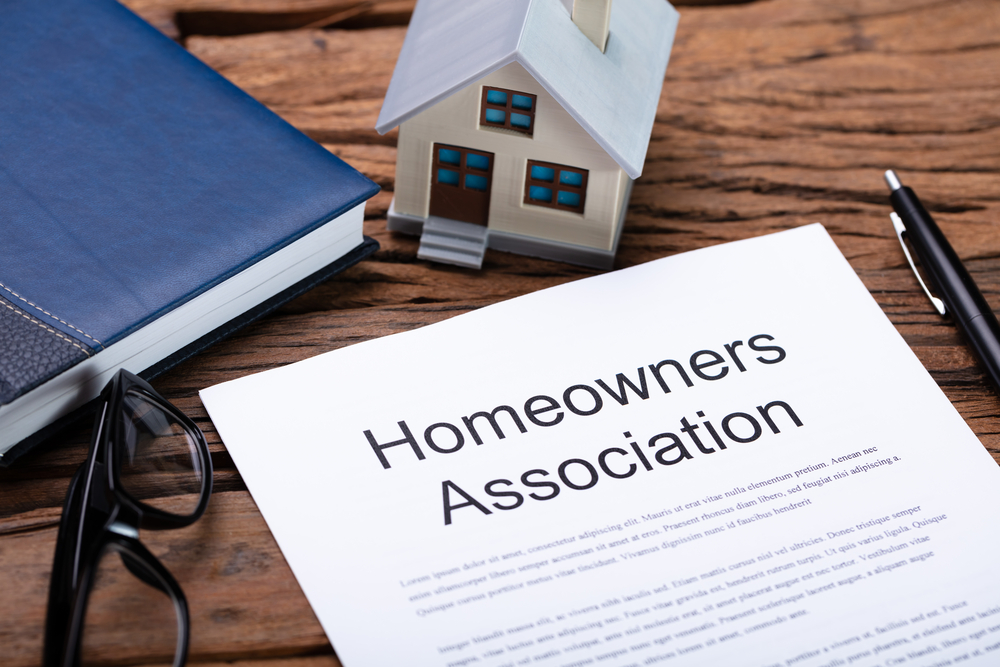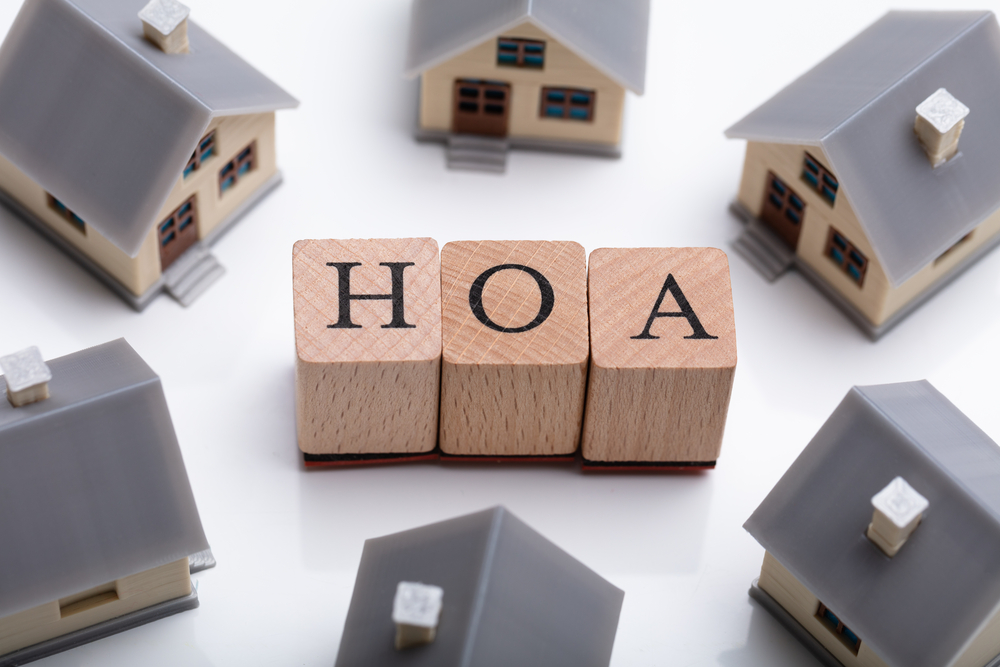
A homeowner’s association (HOA) can have some excellent benefits. Typically, the home values are higher in communities with an HOA board and will often have exceptional amenities. Of course, these benefits do come at a cost to the HOA member.
When you’re part of a community governed by an HOA, you need to follow specific rules and regulations that are put forth. Below, you’ll learn more about Las Vegas HOA Violation letters, and what you can do about them.
What is a Homeowners Association HOA?
An HOA is an organization in a community or building that sets and enforces specific rules that are believed to be for the benefit of everyone who lives there. When you purchase a property in the jurisdiction of an HOA, you must abide by those rules and pay an HOA fee. While HOAs can differ from one property to another, they all have rules that need to be followed.
What are the Different Types of HOA Rules in Las Vegas?

Homeowners associations (HOAs) in Las Vegas, like in many other places, enforce HOA rules and regulations governing the community. While rules can vary between different HOAs, here are some common types of rules you might find in Las Vegas HOAs:
- Architectural Guidelines: These rules dictate what changes homeowners can make to the exterior of their homes, such as paint colors, landscaping, fences, and additions.
- Use of Common Areas: Common areas like parks, pools, and clubhouses often have rules regarding their use, such as hours of operation, guest policies, and pet regulations.
- Maintenance Requirements: HOAs may require homeowners to maintain their properties to specific standards, including rules about lawn care, exterior maintenance, and cleanliness.
- Parking Regulations: Rules about parking, including where residents and guests can park, rules for recreational vehicles and boats, and enforcement procedures for violations.
- Noise Ordinances: Regulations to minimize disturbances to neighbors, such as rules about loud parties, barking dogs, and other nuisances.
- Rental Restrictions: Some have rules limiting or prohibiting the rental of homes within the HOA community or imposing restrictions on rental durations and conditions.
- Pet Regulations: Rules regarding the number, type, and size of pets allowed, leash requirements, and cleaning up after pets.
- Trash and Recycling Guidelines: Rules about garbage and recycling collection, including when bins can be placed for pickup, and strict guidelines for disposal of large items.
- Signage Restrictions: There are regulations governing the placement and size of signs on homeowners’ properties, including political signs, for-sale signs, and other types of signage.
- Home Business Policies: Some HOAs have rules regarding running businesses out of residential properties, including restrictions on signage, client visits, and noise levels.
What is an HOA Violation?
Each homeowners’ association operates under a set of governing documents meticulously crafted to maintain the integrity and harmony of the community. These governing documents, such as the CC&R and bylaws, serve as the backbone of the neighborhood, outlining the rules and regulations that all residents are expected to follow.
When you violate one of the regulations outlined in the HOA governing documents, you will likely receive a notice about the infraction. This notice is a formal communication from the HOA board members, detailing the specific issue at hand and providing instructions on how to rectify it. These instructions are derived directly from the governing documents and may include steps you need to take to correct the problem, any associated fees or fines, and a deadline by which the issue must be addressed.
It’s important to understand that these governing documents are not just arbitrary rules imposed by the HOA; rather, they are agreements that homeowners have consented to abide by when they chose to live in the community. Homebuyers are typically provided with copies of these governing documents during the purchasing process, allowing them to review and understand the rules before making a decision. By familiarizing themselves with these governing documents, homeowners can make informed choices about whether the neighborhood is a good fit for them and ensure they are prepared to comply with its regulations.
8 Most Common Las Vegas HOA Violations

Rules vary from one homeowners association to the next, and an HOA violation in Las Vegas may be handled differently from one to the next. Many common HOA violations tend to be part of most communities:
- Landscaping: If you have overgrown landscaping or landscaping that doesn’t fit within the rules of the HOA.
- Parking: If you park in the wrong spot or if you’re parking in an off-limits area.
- Trash: If you aren’t putting your trash containers in the right area for pickup or if you have trash outside of your home.
- Decorations: Certain decorations, such as holiday decorations up past a specific date, may be off-limits.
- Pets: There may be limits on the types of pets or their weight. Excessive dog barking may also be a pet violation.
- Architectural: Making unapproved architectural changes, such as putting in a pool, could be a significant violation.
- Illegal rentals: Putting your place up for rent in a community where rentals aren’t allowed.
- Noise complaints: Excessive noise after specific hours, especially during evenings.
Given the potential ramifications of common HOA violations, homeowners are encouraged to familiarize themselves with their community’s rules and regulations. Seeking guidance from a professional property management company can also be beneficial in navigating HOA-related issues effectively and ensuring compliance with established guidelines. By staying informed and proactive, homeowners can contribute to a harmonious living environment within their HOA community while avoiding the pitfalls associated with common HOA violations.
Why Did I Get an HOA Violation?
If the homeowner fails to follow or break one of the homeowners association rules, the HOA is supposed to notify you of the issue and give you time to rectify it. In some cases, this might include an initial fine. Other times, you will receive a warning and have time to fix the problem before getting another letter and a fine.
You could get a violation for any of the above infractions or for breaking another rule. The HOA must act fairly when enforcing the rules. If others break the same rules, they must be held accountable for their actions.
What Should You Do When You Get an HOA Violation Notice?
If you receive HOA violation notices, you should read the letter and ensure you understand what you did wrong. You must correct the violation immediately and then contact an HOA board member to let them know the problem was fixed.
You can submit proof that you’ve corrected the violation with photos and sent them via email or certified mail. HOA board members may have rules on how they want to be contacted. Moreover, you must also request in writing from the HOA that the violation has been closed and that no further action is needed.
Knowing that the problem has been appropriately handled will give you peace of mind. For more details on this topic, read our article on What to do when you receive a HOA violation letter.
Can You Appeal HOA Violation Notices in Las Vegas?

What happens if you don’t feel that you are violating the rules of the property? If you believe you haven’t done anything wrong, you can request to speak with the HOA board members at the next hearing regarding violation notices. These are usually held monthly, but you’ll want to check when your board holds meetings.
You can present your case to the HOA board members at the violation hearing and get a ruling. In some cases, the violation notice may have been sent out by mistake, and it will be easy to clear up. Other times, they will continue to enforce HOA rules. It may also be good to check the bylaws of the HOA community and federal laws to see your rights.
An experienced Las Vegas property management company can handle all these matters for you as a property owner.
Tips to Avoid HOA Violations
Violating the HOA rules and regulations can be quite a hassle, and you’ll want to avoid it whenever possible. The best thing to do is make sure that you read, learn, and follow the HOA documents and ask questions if you have them. It’s better to get clarification on specific rules before you break a rule inadvertently. While you could ask your neighbors for clarification, it’s often better to ask the HOA board since it is the arbiter of the rules.
Remember that there may be changes to the rules and regulations you aren’t aware of if you aren’t attending the HOA meetings and events. Attending these functions is an excellent way to meet your neighbors and ensures you stay on top of the changes. Often, changes are put to a vote, and you’ll want to ensure your vote is counted.
Get Help with Las Vegas HOA Violations from Faranesh Real Estate and Property Management
Addressing HOA violations in Las Vegas requires proactive management. Faranesh Real Estate and Property Management offers solutions to solve these issues. From property upkeep to resolving violations efficiently, we ensure your property complies with regulations, enhancing its value and community harmony.
Trust us to handle your HOA concerns effectively. Schedule a consultation with Faranesh Real Estate and Property Management today for tailored solutions and peace of mind.


